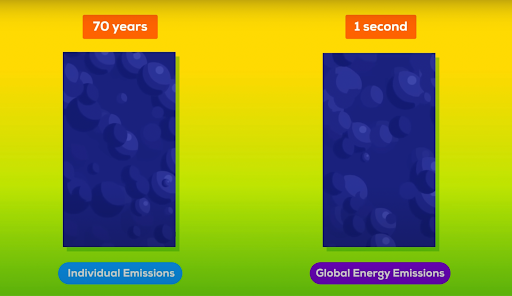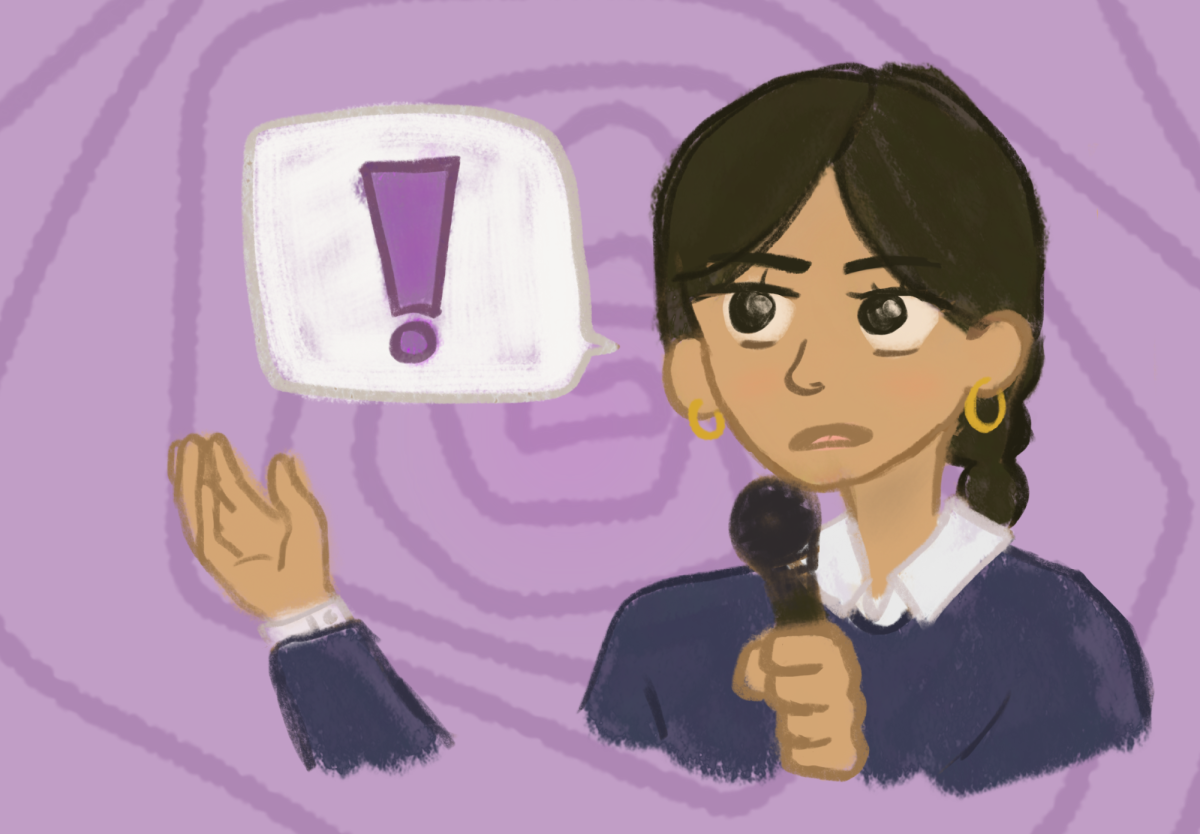Extinction, wildfires, droughts, floods — relentless environmental destruction flashing across our screens and headlines is an everyday unavoidable reality. In the midst of this turmoil, one might pause and wonder: what can truly be done in the face of such colossal challenges? The answers seem elusive, no single action capable of miraculously healing the Earth. And so, the TV is turned off, the article tab closed, and life resumes its course. Yet, there is a lingering sense of guilt, hopelessness, and fear whilst the planet teeters on the brink of catastrophe.
“Ecological grief,” or “eco-grief,” refers to the sense of profound loss arising from experiencing or learning about environmental destruction and climate change. Emotions vary, from anger in response to thoughtless behavior towards the environment, to despair upon learning about the overwhelming effects of global warming, and even to feelings of hopelessness and apathy.
The emotional impacts of eco-grief extend beyond those directly involved in the climate crisis. Increasingly, another group is finding themselves more susceptible to this sense of loss — teenagers.
A major study conducted by the University of Bath surveyed 10,000 young people aged 16-25 across 10 countries. According to Reuters, the survey found that 75% of respondents found the future frightening, with 45% experiencing climate anxiety due to government and industry inaction.
Similar results were observed in a survey conducted within our ISSH high school community. Of the 47 respondents, 51% associated “hopelessness” as the emotion most closely linked to their thoughts about the state of the environment, while another 72% agreed or strongly agreed that the future would likely be worse than it is now.
Younger generations have grappled with the reality of a climate crisis from early stages in their lives, and for most of us, climate change has become an accepted norm. But to some extent, we all have a collective sense of concern as we witness the escalating threats posed by climate change. Then why, as a generation, are we feeling so hopeless? Despite our shared worries, why do we struggle to act decisively?
For many, climate change can still feel distant and abstract, making it difficult to grasp in its entirety. It’s hard to conceptualize how glaciers melting in the north today could eventually result in Japan sinking underwater. But the reality is stark: if sea levels continue to rise by the century’s end, large coastal areas of Japan are at risk of flooding.
Furthermore, 73% of respondents within the ISSH school community claimed that, though they try to do their part for the environment, they feel as though they are not doing enough.

Personal contributions towards reducing greenhouse gas emissions are favorable, but they simply become dwarfed by the scale of global emissions in our world today. According to Kurzgesagt, a German educational YouTube channel, if an individual eliminated 100% of their emissions for the rest of their lives, they would merely save one second’s worth of emissions from the global energy sector.
When individuals confront the daunting scale of environmental challenges, it can trigger a range of responses. This absence of a clear-cut solution often feeds into a cycle of detachment: from feeling depressed about the state of the planet, to not knowing what actions to take, to ultimately avoiding the issue altogether. The sheer magnitude of the problem is overwhelming, leading to a sense of helplessness, inaction, and eventual apathy.
While some may feel overwhelmed and hopeless, others may respond by setting excessively high and unrealistic expectations for themselves and others.
Ms. Jane Humphrey, a biology teacher, discusses the zero-waste lifestyle that is prominent across social media today. “Sometimes you look on social media, and you see extreme examples. People say, ‘This is all my waste for the year — it fits into this jar,’ and I think that’s a little unrealistic . . . if you’re a mother busy raising children, how are you going to do that? I think there are more realistic ways to take action.”
Both inaction and excessive action can aggravate feelings of inadequacy and guilt, contributing to the negative cycle of eco-grief. Yet, there may be an alternative approach that could provide us with some guidance. The concept of “negative capability,” first coined by the English poet John Keats, originally described the capacity to embrace ambiguity within artistic creations. However, applied to present-day contexts, this idea may also refer to the ability to endure situations without clear answers.
Embracing uncertainty requires a bit of patience, but by doing so we open ourselves up to new perspectives and possibilities. Rather than viewing ambiguity as a source of anxiety or frustration, we can reframe it as an opportunity to shift our perspective to a more positive outlook.
Ms. Humphrey shared her experience reading news articles about the environment, expressing, “I do get upset — particularly if it’s something I hoped for a better outcome.” Nevertheless, she also offers a coping mechanism for eco-grief, which is to focus on the positives rather than the negatives. By subscribing to a monthly environmental newsletter published by “The Earthshot Prize,” a foundation established by Prince William, Ms. Humphrey receives optimistic roundups of current climate action. “They publish stories of all the environmental positive things that are happening, and that can be very encouraging,” she said.
Erika Lazzari (‘19), an ISSH alumna currently pursuing a Master’s programme in Law and Sustainability at Utrecht University, mirrors a similar perspective to Ms. Humphrey. “While it’s important to confront the harsh realities, I believe that channeling those feelings into positive initiatives is more productive than dwelling on hopelessness,” Lazzari wrote in an email. “Instead of fixating solely on the negatives, I try to focus on the hopeful endeavors and proactive measures being taken to address environmental issues. This shift in perspective, I think, is more empowering.”
A positive mindset is applicable to everyday actions. Rather than succumbing to apathy or disengaging from environmental issues, individuals can find optimism in reconceptualizing small gestures as meaningful contributions.
Small individual actions such as taking shorter showers, biking to school, picking up the trash, turning off the lights, and planting a tree may not yield the same monumental impact as large-scale governmental policies, nor reach the same level of impact as Greta Thunberg’s activism. But rather than viewing these small actions as futile attempts to “save the Earth,” they can be seen as ways to ease personal grief, offering a sense of purpose in small but meaningful contributions to reduce climate change. Engaging in actions, even as simple as discussing emotional distress over coffee at a café, fosters connections among individuals who share similar experiences.
Across the globe, various institutions, from social communities to non-profit organizations, passionately advocate for climate action. However, there has been a growing movement for those who are on the other end of the spectrum — one where individuals, instead of harnessing eco-grief for activism, grapple with its emotional toll in the face of environmental challenges.

A growing sentiment has given rise to climate cafes, especially prevalent in the U.S, where individuals come together to discuss their feelings over a cup of coffee, offering attendees a means to share their grief and talk openly about their environmental fears. This exchange not only fosters a new social community, but it also provides “a kind of lightness” as “cafes try to instill hope on our planetary crisis,” according to an interview conducted by the New York Times.
“I think that small actions are very meaningful … not just environmentally but also socially,” Lazzari said. “Individual actions can definitely drive meaningful change, especially when added up all together or when individuals come together.”
Climate change presents us with a predicament that lacks a straightforward solution. The consequences of inaction are dire, yet the path to meaningful change is uncertain. However, by embracing this uncertainty and garnering optimism within ourselves, we are able to assuage our sense of guilt, hopelessness, and fear. Small actions may not create vast impacts, but they are meaningful as they aid us in coping with despair, providing us with purpose as well as the means to navigate through times of climate crisis.
“I don’t think that we are moving fast enough to mitigate the most severe effects of climate change,” Lazzari said. “However, despite these challenges, I remain hopeful, and I think that it is not just a choice to remain hopeful but a necessity.”














